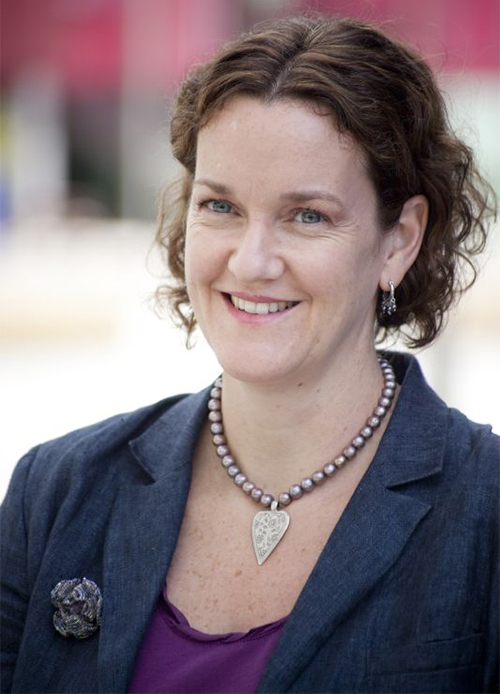 In her research career, Professor Clare Lloyd is a lung immunologist, currently working to understand why some children wheeze with viral infection and others don’t, and how that impacts asthma. But last year she also took up the mantle of Vice Dean (Institutional Affairs) for Imperial’s Faculty of Medicine. Here, Professor Lloyd explains her role outside of the lab.
In her research career, Professor Clare Lloyd is a lung immunologist, currently working to understand why some children wheeze with viral infection and others don’t, and how that impacts asthma. But last year she also took up the mantle of Vice Dean (Institutional Affairs) for Imperial’s Faculty of Medicine. Here, Professor Lloyd explains her role outside of the lab.
What is the Vice Dean (Institutional Affairs) responsible for?
The role covers all aspects of diversity and equality, particularly incorporating and coordinating our Athena SWAN programmes as well as career development across the Faculty.
I am looking at how we support our early career researchers, particularly newly appointed academics and also fellows. The funding climate is difficult, especially for those at the early stage of their career. We’re conscious that we need to make sure they get as much support as possible so that they can maximise their chances of success.
Athena SWAN is all about changing culture, and we want to make sure that everyone can expect the same opportunities and support, no matter where people are based. It’s important that staff feel supported to develop their careers at Imperial. We recognise that really talented people will have a number of doors open to them, and we want to ensure that we attract and retain the very best.
How has your previous experience prepared you for this role?
I was the NHLI Athena lead from 2009-2014 – leading on two Athena applications. We were the first medical department in the country to get a Silver Award, which was then renewed four years later. I want to use this practical experience of Athena successes to support all our departments.
I was also part of a project looking at early career researchers across the College, with the Vice Provost (Research) office. We spoke to people across the Faculties to see how they support their early career researchers, and talked to the researchers themselves about what it was that they wanted, that wasn’t already available to them. I really want to focus on and bring this into my role as Vice Dean for Medicine
What are the biggest challenges in the Faculty of Medicine?
In Medicine, we have a real mix of people who may combine clinical and academic careers, which adds a lot more complexity compared a career focused solely on research. Looking at the data specific to your own staff is a crucial part of Athena, and one thing that stands out is our female clinical fellows. It’s a difficult time in your career for anyone, but especially so when you’re also considering having children.
We need to ensure our trainees know about both internal and external opportunities. We want to improve awareness of schemes like the Dorothy Hodgkin Fellowship, which helps women return to work after a career break, or the Elsie Widdowson Fellowship, set up by Imperial with the specific aim of supporting those returning to research after maternity or adoption leave.
We want people to think of Imperial as somewhere you can undertake a fellowship and have a family. We don’t want anyone to feel that they have to choose between them.
It’s also harder to build communities across so many different physical sites, and potentially very difficult environments. The South Kensington Campus is a markedly different place to Hammersmith Hospital. We want to make sure these factors don’t limit the opportunity to be part of a community.
Where do you feel is the biggest opportunity for supporting people and their careers in the Faculty?
There’s huge potential in mentoring, which is available throughout the College, but it varies so much. We’re working to see how we can improve mentoring opportunities, as some departments have already as part of their Athena programmes. We want to coordinate training so that mentors are prepared to the same standards, making it possible for people to find a mentor outside their own department if they want to.
Sometimes, particularly for technical staff, they may not have the right independent expertise in their own department. A central database will help match people with the best possible mentor from across the Faculty.
This will also benefit those going for a promotion. It helps to have someone who’s not their line manager – who’s fully independent – to give them feedback and guide them through what can sometimes be an intimidating process.
Something we’ve discussed at College level is that people need mentoring at every single stage of their career. Even when you’re a professor, it can be daunting to put yourself forward for higher profile jobs in or outside the College.
It might be a long or a short relationship, but we really want mentoring to be specific to career challenges to focus efforts. We want to encourage set timescales, and monitor progress to achieve mentoring goals.
How do you balance your role as Vice Dean with your academic work?
My scientific work is still my main drive – I’d be very unhappy if I didn’t have my research programme! But it’s so rewarding to be able to talk to people at different stages of their working lives and to be part of the team that advances their careers.
My role as Vice Dean gives me the opportunity to pass on the benefits of my experience and work towards a common goal. I’d like to help create an environment where people can balance their commitments, receive career guidance to achieve their objectives, ultimately so that everyone can succeed in the direction that drives them.
I want to help Imperial be recognised as an environment where everyone can achieve the career successes that they desire.